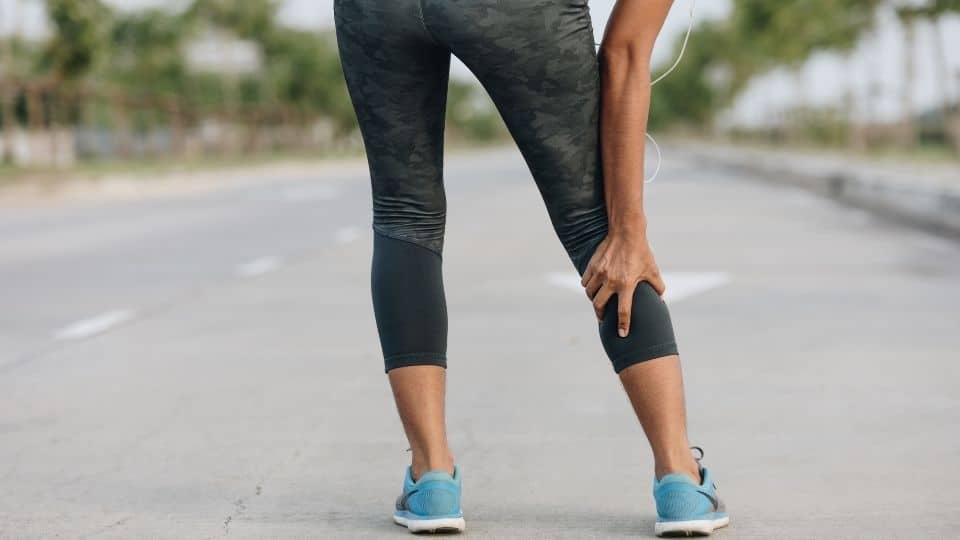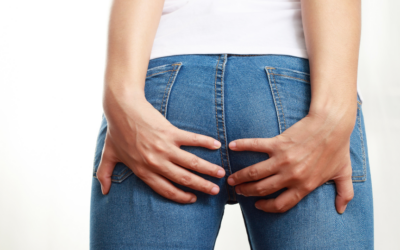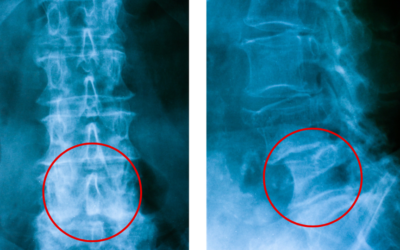Do you experience pain in your legs after sitting or riding in a car for an extended period of time? If so, you’re not alone. Many people suffer from this type of discomfort known as leg cramps. In this post, we’ll explore the causes of leg cramps and offer tips on preventing them. Stay tuned!
As a general rule, if your leg hurts while driving, you most likely have sciatica. It occurs when the spinal cord becomes pinched or obstructed for a specific time, which causes shooting sensations all along your lower back and thighs.
In this article, I will explain why your legs hurt after sitting in a car. This will be founded on my 30 years of advising, treating patients facing similar challenges, researching, designing simple solutions (even a successful Kickstarter campaign!), and I even published a book about the topic.
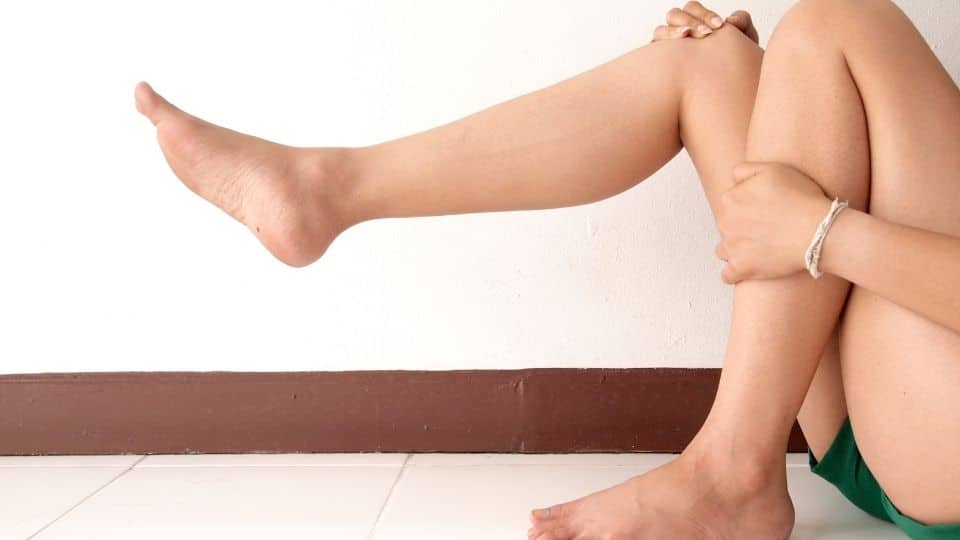
What Causes Leg Pain After Sitting for a While?
There are a few different things that can cause leg pain after sitting for a while. It could be something as simple as poor circulation or a more severe condition like deep vein thrombosis. If you’re experiencing leg pain after sitting, it’s essential to see a doctor to find out what is causing it.
Poor circulation is one of the most common causes of leg pain after sitting. When you sit for long periods, your muscles can start to cramp up and feel tight. This is because your blood isn’t flowing as well as it should be. Poor circulation can also cause your legs to feel heavy and tired.
If you have a job requiring you to sit for long periods, make sure you take breaks often and try to move around as much as possible. Taking a brisk walk or doing some light stretching can help improve your circulation and reduce leg pain.
Another common cause of leg pain after sitting is deep vein thrombosis (DVT). This is a condition where a blood clot forms in one of the deep veins in your legs. DVT can be dangerous because it can break off and travel to your lungs, causing a pulmonary embolism.
If you have leg pain after sitting, you must see a doctor to find out what is causing it. There are treatments available for both poor circulation and DVT. Sometimes, your doctor may recommend surgery to improve your circulation or remove the blood clot.
Best Tip so Your Legs Won’t Hurt After Riding in a Car?
My professional experience has suggested that poor posture when seated, such as in a car, can be the source of leg pain. To help patients manage this discomfort, I often recommend the use of an orthopedic seat wedge. This device helps to support your spine and core muscles so that you can achieve improved posture while seated for long periods of time.
The seat wedge is designed to provide a comfortable fit and cushioning for your back and legs, allowing for maximum comfort and support throughout your drive or journey. Additionally, it helps to ensure that your spine remains in proper alignment to reduce any additional discomfort caused by misalignment while sitting in the same position for extended periods.
Best Seat Cushion for CarDoctor's Recommendation
Black Friday Offer!
Get 35% off Orthopedic Seat Cushion
Product DetailsResearch-based Design
Recommended ForBack Discomfort
Video Guide
Video Guide
With my unique design, the seat wedge provides stability and firmness while also gently conforming to the contours of your body to ensure optimal ergonomics are achieved. When utilized properly, this device can help to reduce leg pain caused by sitting in a car, making it an invaluable tool when on long trips or commutes.
I explain the concept of an orthopedic seat wedge on a TV show HERE!
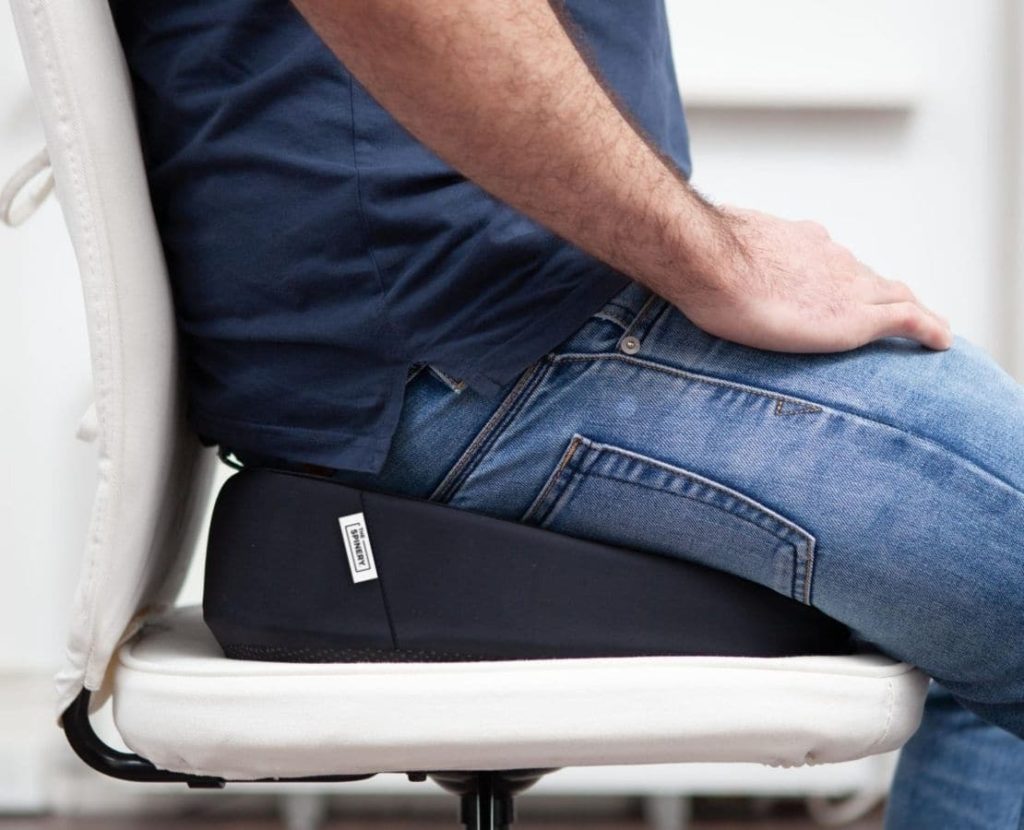
Orthopedic seat wedges can provide additional cushioning and may promote a more comfortable sitting position. They can also help to maintain an angle between the legs and torso that may be more comfortable than a vertical or unsupported position.
I was surprised how similar cheap memory foam seat cushions (with FAKE REVIEWS) were on Aliexpress from the listing on Amazon!
Forward tilt helps keep our spine healthy by distributing weight properly, so there are no strains on any joints.
How Do You Fix Leg Pain From Sitting?

If you experience leg pain after sitting for long periods, it is essential to seek medical attention. Several different conditions, including: can cause this type of pain
-Compression fractures
-Degenerative disc disease
-Osteoarthritis
-Sciatica
If you are experiencing leg pain, it is essential to see a doctor so that they can properly diagnose the cause of your pain and recommend the best course of treatment. Treatment for leg pain caused by sitting may include:
–Rest
-Ice
-Compression
-Elevation
-Exercise
-Surgery (in severe cases)
If you are experiencing leg pain, it is essential to seek medical attention so that the cause of your pain can be adequately diagnosed and treated. Treatment for leg pain caused by sitting may include rest, ice, compression, elevation, exercise, and surgery.
Black Friday: 35% Off Today
Typical Delivery 1-3 Days
If you are into super easy and inexpensive alternatives to office chairs, I wrote a fantastic article on how and why you should consider these options for back pain, and I encourage you to read it!
Why Do I Have a Hard Time Walking After Sitting?
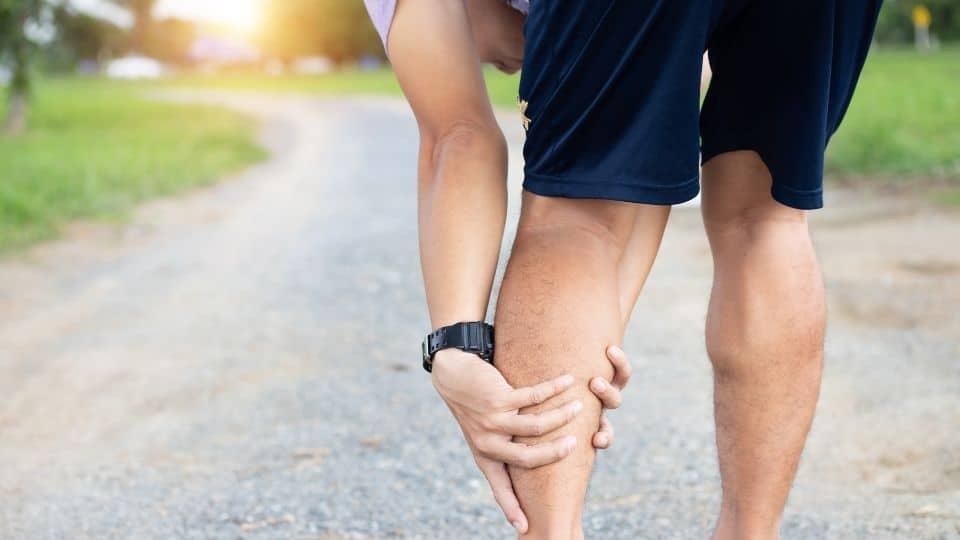
There are a few reasons why you may have difficulty walking after sitting for an extended period. One reason could be that your muscles have become stiff from not being used. Another reason could be poor circulation, which can cause your legs to feel heavy and tired. Finally, if you sit for too long without moving, you may experience cramps or muscle spasms. All of these reasons can make it difficult to walk, but there are some things you can do to help improve the situation.
– First, get up and move around every few hours to keep your muscles from getting too stiff.
– Second, try to improve your circulation by taking a walk, stretching, or massaging your legs.
– Finally, if you start to experience cramps or spasms, try to gently stretch the affected muscle or take a warm bath or shower to help relax it.
If you still have difficulty walking after trying these things, you should talk to your doctor to see if there may be another underlying cause.
How Do I Know if My Leg Pain Is Serious?
If you’re experiencing leg pain, it’s essential to determine the cause to get the appropriate treatment. In some cases, leg pain is caused by a simple muscle cramp or strain and will go away independently with rest. However, there are other times when leg pain can signify a more severe condition, such as a blood clot.
If you have any of the following symptoms along with leg pain, it’s essential to see a doctor right away:
- Swelling in the leg
- Redness or warmth in the leg
- Pain that gets worse when you walk or stand
- Shortness of breath
- Chest pain
Don’t wait to see a doctor if you have any of these symptoms. Leg pain can be a sign of a severe condition that needs prompt medical treatment.
What Are the Symptoms of Sitting Too Long?
If you spend most of your day sitting, you may risk developing severe health problems. Some symptoms associated with sitting too long include back pain, neck pain, headaches, and fatigue.
Additionally, sitting for long periods can lead to poor circulation, varicose veins, DVT (deep vein thrombosis), and other health problems. If you experience any of these symptoms, taking breaks throughout the day and moving around as much as possible is essential. Additionally, stretching and strengthening exercises can help to alleviate some of the symptoms associated with sitting too long.
I’ve written a complete hands-on review about the best sitting position for sciatica, and here is what I tested best with my sciatica patients.
What Is the Best Vitamin for Stiff Joints?
Eggshell membrane supplementation is a good option if you’re looking for a vitamin to help with stiff joints. This natural product contains hyaluronic acid, known for its lubricating and cushioning properties. Eggshell membrane (NEM) also provides other essential nutrients for joint health, including collagen and glucosamine.
Summary
So, what causes leg cramps? Many potential culprits are dehydration, muscle fatigue, and vitamin deficiencies. However, the most common cause is a lack of blood flow to the muscles. This can happen when you sit or stand in the same position for too long or when your muscles are cold. Fortunately, there are several things you can do to prevent leg cramps from occurring. Here are a few tips:
- -Drink plenty of water throughout the day to stay hydrated
- -Stretch your legs and feet regularly
- -Avoid sitting or standing in one place for too long
- -Warm up your muscles before exercising
- -Make sure you’re getting enough vitamins and minerals

